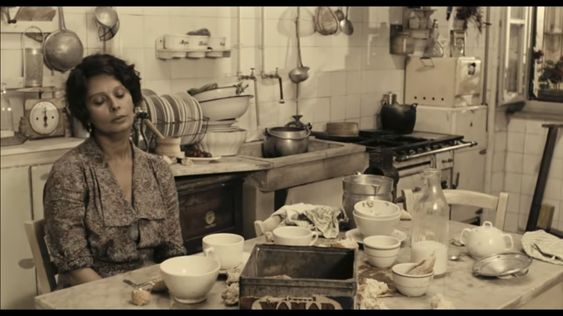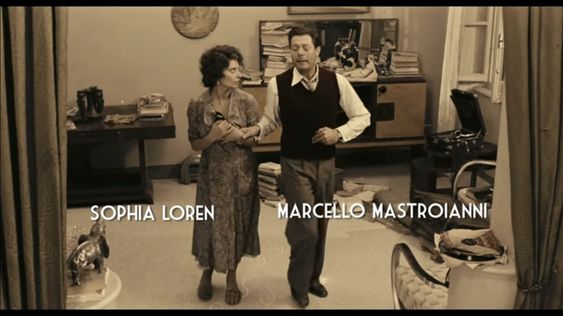Love, Atrocities, and Reconciliation: Darwish, Arendt, and the Ethics of Beginning Anew

Love and geopolitics often intertwine in heartbreaking and unforgettable narratives, whether legend, fiction, or real-life accounts. These stories are typically entangled in ethnic and religious conflict, ideological divide, and forbidden romance framed by identity politics—elements that render resolution unforeseeable.
Love Is Forbidden
Some true love stories are carved into time through poetry and become not only the legacy of a people but also a defining part of their history. One such story is the love affair between the late renowned Palestinian poet Mahmoud Darwish (13 March, 1941—9 August, 2008) and the Jewish-Israeli young woman he fell deeply in love with in the early 1960s. A woman whom he refers to as “Rita” in his poems—a name that echoes across two decades of his artistic career, shaped by imprisonment, political estrangement, and exile.
In his 1969 poem Rita… Love me, Darwish reflects on the impossibility of their love:
Love is forbidden… Here the police and fate are antiquated Shattered are the idols that you revealed your love
Another passage from the same poem expresses the pain of loss:
Sleep on my dream. Your taste is acrid Your eyes are lost in my silence And your body is full of summer and beautiful death. At the end of the world I embrace you When you withdraw full of the impossible.
Their forbidden love could not survive the political tension it was engulfed in, especially after “Rita”, whose real name is Tamar Ben-Ami, joined the Israeli army—a decision which ended their romance. Nevertheless, intimate love letters Darwish wrote to her in Hebrew—kept secret for decades and later revealed in the documentary, Write Down, I am an Arab (2014)—stands as a testament to how love, ruptured by political and ideological divide, is silently endured.
This silenced love is reflected in the famed 1966 poem, Rita and the Rifle, where Darwish writes:
Oh, the silence of dusk In the morning my moon migrated to a far place Towards those honey-colored eyes And the city swept away all the singers And Rita. Between Rita and my eyes— A rifle.
The death of the romance, plagued by political violence and civil surveillance, impacted Darwish’s art. The love he held for “Rita” remains alive through his poetry, echoing across generations.
Betrayal and Forgiveness
Betrayal potentially arises in a love affair entangled in geopolitics and ideology. One such case is the well-known affair between German-American philosopher Hannah Arendt (October 14, 1906–December 4, 1975) and her professor, the influential yet controversial German thinker Martin Heidegger (September 26, 1889– May 26, 1976). Arendt first met Heidegger in late 1924 as an 18-year-old student at the University of Marburg. Their encounter subsequently sparked a relationship that would last several years—kept discreet due to Heidegger’s marriage. Yet what ultimately shadowed their bond was Heidegger’s later affiliation with the Nazi party, a betrayal that would affect both their personal connection and Arendt’s ethical reflections for decades.
It was only after their love letters were discovered in the 1980s and published that the relationship between Hannah Arendt and Martin Heidegger became publicly known, igniting intense scholarly debate. The controversy centered on Heidegger’s affiliation with the Nazi Party, which he joined in 1933—just as Arendt, a Jew, was fleeing Germany following a brief detainment by the Gestapo.
In his first letter to Arendt, written in February 1925, Heidegger confesses:
“I will never be able to call you mine, but from now on you will belong in my life, and it shall grow with you.”
A year later, Arendt had broken off the relationship with Heidegger following her move to the University of Heidelberg. However, they continued to correspond into the early 1930s. In April of 1928, a letter from Arendt reflects the depth of their enduring love:
“I love you as I did on the first day—you know that, and I have always known it, even before this reunion. The path you showed me is longer and more difficult than I thought.”
In 1929, on her wedding day, Arendt writes:
“Do not forget me, and do not forget how much and how deeply I know that our love has become the blessing of my life. This knowledge cannot be shaken, not even today ...”
She closes the letter affectionately:
“I kiss your brow and your eyes, Your Hannah”
After a long silence—likely prompted by Heidegger’s Nazi affiliation—Arendt, now in her second marriage, chose to reconcile with him in 1950, not as a romantic partner, but as an intellectual peer. This decision was triggered by their first reunion in Freiburg that same year. The posthumous publication of their postwar letters later revealed the depth and complexity of this renewed connection, leading many scholars to reexamine how Heidegger’s influence and their relationship shaped Arendt’s thought, as Adrent is considered one of the most influential political theorists of the twentieth century.
In The Human Condition (1958), Arendt introduces the concept of natality—the capacity for new beginnings. For her, human freedom is rooted in the ability to initiate anew, even in the wake of betrayal and historical trauma. Natality enables reconciliation not by erasing the past, but by narrating and accepting it, and by exercising judgment toward both past and future.
While reconciliation has its limits—especially in cases of crimes where justice demands accountability—Arendt viewed both reconciliation and nonreconciliation as acts of political judgment. Both are judgments of the past and future and thought and action. These judgments, which require one to think from the standpoint of everyone else and reflect beyond ideological divisions, open the possibility for forgiveness and reconciliation. This framework may illuminate Arendt’s postwar reconciliation with Heidegger, which unfolded through a series of affectionate and intellectually vibrant correspondences between the two philosophers.
Furthermore, Arendt envisioned a shared world of plurality, where difference and equality coexist—not a nation-state founded on ethnic exclusivity. This vision was likely shaped by her lived experience: years spent in exile as a Jew, and her conflicted yet compassionate relationship with Heidegger.
Historical Trauma: Beginning Anew
Even in the face of political oppression and ideological division, love can flourish—persisting between those on opposing sides. Darwish and Tamar’s relationship demonstrates that, in such circumstances, loving “the Other” becomes a political act. His poems have become part of Palestine’s collective memory, shaping how a people remember their past and imagine their future—how they perceive and respond to historical trauma.
In Arendt’s perspective—shaped by her lived experience—historical trauma should not justify vengeance, but rather open a path toward beginning anew: to acknowledge irreversible loss and envision the future. This suggests that even in the face of devastation, forgiveness and reconciliation are key to peace-building—actions that enable coexistence grounded in plurality, dignity, and equality within and across nations. On the ground, this entails a journey of judgment that ensures the meaningful representation of survivors and marginalized groups—including women, though Arendt does not explicitly address gender—in the processes of truth-telling, testimony, inclusive dialogue, and the honoring of collective memory. Could Arendt’s vision help address today’s atrocities?
-Some Thoughts from the Cappuccino Girl- (2025)
#history #literature #ideology #politics #Palestine #Germany #WorldWar2 #films #fascism
You might be interested to read: The Salute of Tyranny
Images: Darwish via arablit.org; Arendt by Fred Stein via deutschland.de
Sources:
Berkowitz, Roger (2017) ‘1. Reconciling Oneself to the Impossibility of Reconciliation: Judgment and Worldliness in Hannah Arendt’s Politics.’ In Roger Berkowitz and I. Storey (eds.) Artifacts of Thinking: Reading Hannah Arendt's Denktagebuch. New York, USA: Fordham University Press. https://doi.org/10.1515/9780823272204-002.
Çubukçu, Ayça (2025) ‘Arendt, Gaza and Personal Responsibility Under Genocide’, Critical Legal Thinking. https://criticallegalthinking.com/2025/02/03/arendt-gaza-and-personal-responsibility-under-genocide [11 August 2025].
McMahan, Luke (2024) ‘Rita… Love Me: A Poem by Mahmoud Darwish’, Arab America. https://www.arabamerica.com/rita-love-me-a-poem-by-mahmoud-darwish [8 August 2025].
Murray, Eóin (2008) ‘Obligations of Love, Obligations of Politics’, Poetry Ireland. https://www.poetryireland.ie/writers/articles/obligations-of-love-obligations-of-politics [10 August 2025].
Poem Hunter (2013) Rita and the Rifle—Poem by Mahmoud Darwish https://www.poemhunter.com/poem/rita-and-the-rifle/ [8 August 2025].
Popova, Maria (2016) ‘The Remarkable Love Letters of Hannah Arendt and Martin Heidegger’, The Marginalian. https://www.themarginalian.org/2016/04/25/hannah-arendt-martin-heidegger-love-letters [8 August 2025].
Puspapertiwi, Erwina Rachmi and Sari Hardiyanto (2023) ‘Kisah Mahmoud Darwish, Penyair Palestina yang Jatuh Cinta pada Perempuan Yahudi.’ Kompas.com. https://www.kompas.com/tren/read/2023/12/08/133000065/kisah-mahmoud-darwish-penyair-palestina-yang-jatuh-cinta-pada-perempuan?page=all#page2 [8 August 2025].
Wasserstein, David J. (2012) ‘Prince of Poets’, The American Scholar. https://theamericanscholar.org/prince-of-poets [10 August 2025].
POPULAR TOPICS
#subculture
Gurlesque: Poetics of the Bizarre, Ugly, and Feminine
#films
Mrs. Robinson, Countercultures, and Politics
#history
The Dutch Golden Age, Golden for Whom?
I also write articles here: https://feministpassion.blogspot.com/


